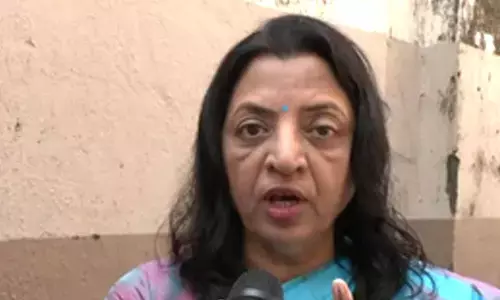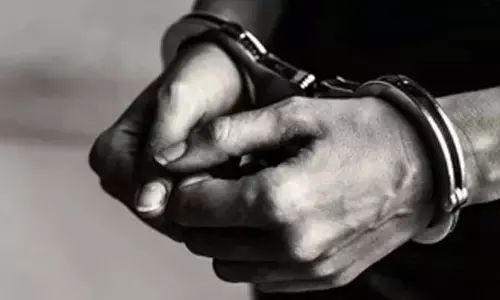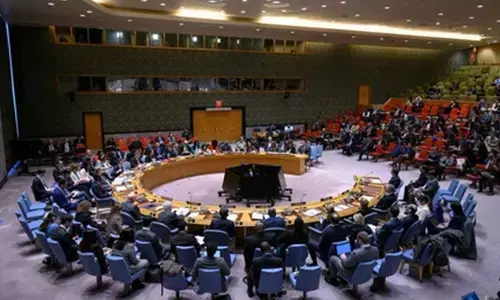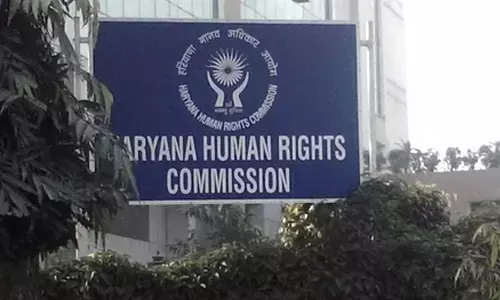A debate on Presidential system in India
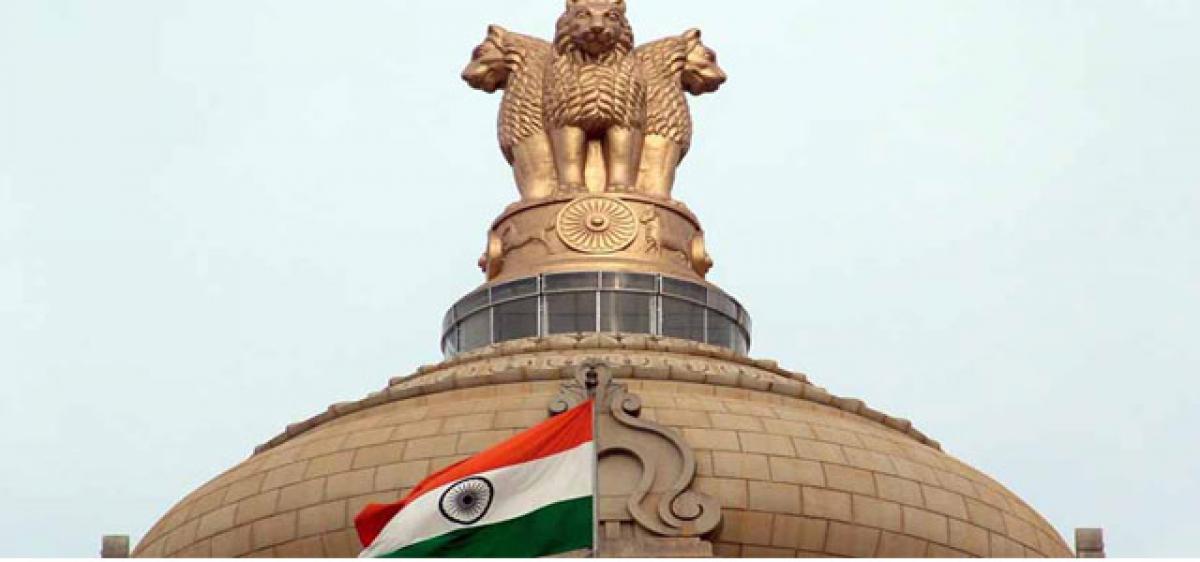
The system of government under which man lives is fundamental to his being. Government is behind every evil in society, and every virtue. It shapes a society\'s character. A good government allows individuals to become honest and virtuous; a bad one makes them wicked and corrupt.
The system of government under which man lives is fundamental to his being. Government is behind every evil in society, and every virtue. It shapes a society's character. A good government allows individuals to become honest and virtuous; a bad one makes them wicked and corrupt.
A system of government, therefore, isn't simply a matter of man's prosperity or liberty; it is also a matter of his morality.
For a nation to prosper, its political system must foster a national vision, ensure fairness and encourage participation. When a nation has vision, when its citizens' efforts are fairly rewarded and when there are opportunities for participation, the nation rises.
India's parliamentary system fails to deliver any of these ingredients. A great people are languishing because of a poor choice made in their system of government.
It was argued that the political system in India was created based entirely on British parliamentary democracy by some sections of the society and their experience of what they themselves were deprived of. So, according to these people, the Westminster model of democracy is not suited to our reality.
Traditionally, there have been three criticisms of the presidential form of government: the president can assume dictatorial powers; the executive is not responsible to the directly elected legislature; and finally, if the president belongs to one party and the legislature is controlled by another party, it can lead to conflict and paralysis. Each of these criticisms can be dealt with. As the US experience has shown, there are definite checks and balances in the presidential system.
Present Presidential system in India
Presidential system is a system of government where a head of government is also head of state and leads an executive branch that is separate from the legislative branch.
The United States, for instance, has a presidential system. The executive is elected and often titled "president" and is not responsible to the legislature, which cannot in normal circumstances dismiss it.
The legislature may have the right in extreme cases to dismiss the executive, often through impeachment; however such dismissals are seen as so rare as not to contradict a central tenet of presidentialism, that in normal circumstances using normal means the legislature cannot dismiss the executive.
The title president has persisted from a time when such person personally presided over the governing body, as with the US President of the Continental Congress, prior to the executive function being split into a separate branch of government.
Presidential systems are numerous, but the following are generally true:
- The executive can veto legislative acts and, in turn, a supermajority of lawmakers may override the veto. The veto is generally derived from the British tradition of royal assent in which an act of parliament can only be enacted with the assent of the monarch.
- The president has a fixed term of office. Elections are held at regular times and cannot be triggered by a vote of confidence or other parliamentary procedures, although in some countries there is an exception which provides for the removal of a president who is found to have broken a law.
- The executive branch is unipersonal. Members of the cabinet serve at the pleasure of the president and must carry out the policies of the executive and legislative branches. Cabinet ministers or executive departmental chiefs are not members of the legislature. However, presidential systems often need legislative approval of executive nominations to the cabinet, judiciary, and various lower governmental posts. A president generally can direct members of the cabinet, military, or any officer or employee of the executive branch, but cannot direct or dismiss judges.
- The president can often pardon or commute sentences of convicted criminals.
- Countries that feature a presidential system of government are not the exclusive users of the title of president. For example, a dictator, who may or may not have been popularly or legitimately elected may be and often is called a president. Likewise, leaders of one-party states are often called presidents. Most parliamentary republics have presidents, but this position is largely ceremonial; notable examples include Germany, India, Ireland, Israel and Italy. The title is also used in parliamentary republics with an executive presidency, and also in semi-presidential systems.
Benefits of Presidential system:
- First, it will force political parties to be more democratic and robust. All political parties will have to chose their best candidates as there will be a direct head-to-head contest. The people will not accept anyone less. There will be no alternate power centres, no remote controls, and no backseat drivers. Those not in the magic circle will get an opportunity.
- Second, the voters will know their candidates intimately. The electorate has enough data to take calls on their candidates.
- Third, the president will be fully in charge of the executive. He will be able to attract the best and brightest to his cabinet, irrespective of their political affiliations. They will serve at his pleasure and be accountable to him. He won’t have to fix quotas for allies or give important positions to senior but incompetent leaders. Nor will he have to waste time thinking about their loyalty.
- Fourth, the government will be stable. The president will be elected by the people and will be voted out by them. He will not have to appease unreasonable allies and indulge in compromises all the time. He can raise FDI sectoral caps, increase the price of diesel, and hike train fares without thinking that his job is in danger or that he will be forced to rollback these measures.
- Fifth, the legislature will be free to do its work. The job of parliament is to pass laws. But opposition law-makers have begun to believe their duty is to bring down the government. Once that power is taken away from them, it will bring them back to their primary task of discussing bills and passing laws that will improve the lot of the people.
Arguments against Presidential system:
- A presidential system centralises power in one individual unlike the parliamentary system, where the Prime Minister is the first among equals. The surrender to the authority of one individual, as in the presidential system, is dangerous for democracy.
- The over-centralisation of power in one individual is something we have to guard against. Those who argue in favour of a presidential system often state that the safeguards and checks are in place: that a powerful President can be stalled by a powerful legislature. But if the legislature is dominated by the same party to which the President belongs, a charismatic President or a “strong President” may prevent any move from the legislature.
The presidential system’s reputation in India is sullied because its name became associated with an autocrat. How exactly does the American structure make it impossible for the president to become a dictator?
- First, there is the federal structure. The state governments are genuinely sovereign. They cannot be controlled, even by the combined forces of Congress and the president.
- Second, the executive, legislative and judiciary are not just separate in powers but in institutions. Each institution derives its legitimacy directly from the people, not from another branch.
- Third, each institution is balanced with others. In the legislature, the balance is between the House and the Senate, and then with the president. In the judiciary it is with the executive and legislature, and with the states. The executive is balanced with the Senate with regard to treaties and appointments.
- Lastly, the people hold direct sway over them all. They elect the legislative and the executive branches separately.
- Besides this, India’s many challenges require political arrangements that permit decisive action, whereas ours increasingly promote drift and indecision.
- India must have a system of government whose leaders can focus on governance rather than on staying in power.
- A system of directly elected chief executives at all levels – panchayat chiefs, town mayors, Chief Ministers (or Governors) and a national President – elected for a fixed term of office, invulnerable to the whims of the legislature, and with clearly defined authority in their respective domains – would permit India to deal more efficiently with its critical economic and social challenges.
- Cabinet posts would not be limited to those who are electable rather than those who are able. At the end of a fixed period of time — say the same five years we currently accord to our Lok Sabha — the public would be able to judge the individual on performance in improving the lives of Indians, rather than on political skill at keeping a government in office.
- The fear that an elected President could become a Caesar is ill-founded since the President’s power would be balanced by directly elected chief executives in the States.
- In any case, the Emergency demonstrated that even a parliamentary system can be distorted to permit autocratic rule. Dictatorship is not the result of a particular type of governmental system.
What about the States?
- The underlying argument is that it is easier to bring talent to governance in a presidential system, is specious.
- Getting ‘outside’ talent in a parliamentary system too, right from C.D. Deshmukh to T.A. Pai to Manmohan Singh to M.G.K. Menon to Raja Ramanna, talent has been coming into the parliamentary system with the added safeguard of democratic accountability, because the ‘outsiders’ have to get elected after assuming office.
- On the other hand, bringing ‘outside’ talent in a presidential system without people being democratically elected would deter people from giving independent advice to the chief executive because they owe their appointment to him/her.
- Those who speak in favour of a presidential system have only the Centre in mind.
- They have not thought of the logical consequence, which is that we will have to move simultaneously to a “gubernatorial” form in the States. A switch at the Centre will also require a change in the States.
Direct accountability
- However, in India, the President would have to work with Parliament to get his budget through or to pass specific Bills.
- India’s fragmented polity, with dozens of political parties in the fray, makes a U.S.-style two-party gridlock in Parliament impossible.
- An Indian presidency, instead of facing a monolithic opposition, would have the opportunity to build issue-based coalitions on different issues, mobilising different temporary alliances of different smaller parties from one policy to the next – the opposite of the dictatorial steamroller some fear a presidential system could produce.
- Any politician with aspirations to rule India as President will have to win the support of people beyond his or her home turf; he or she will have to reach out to different groups, interests, and minorities.
- Since the directly elected President will not have coalition partners to blame for his or her inaction, a presidential term will have to be justified in terms of results, and accountability will be direct and personal.
- Democracy is vital for India’s survival. With the needs and challenges of one-sixth of humanity before our leaders, India must have a democracy that delivers progress to people. Changing to a presidential system is the best way of ensuring a democracy that works. It is time for a change.
Need for a shift:
Our parliamentary system is a perversity only the British could have devised: to vote for a legislature in order to form the executive. It has created a unique breed of legislator, largely unqualified to legislate, who has sought election only in order to wield executive power.
There is no genuine separation of powers: the legislature cannot truly hold the executive accountable since the government wields the majority in the House. The parliamentary system does not permit the existence of a legislature distinct from the executive, applying its collective mind freely to the nation’s laws.
For 25 years till 2014, our system has also produced coalition governments which have been obliged to focus more on politics than on policy or performance. It has forced governments to concentrate less on governing than on staying in office, and obliged them to cater to the lowest common denominator of their coalitions, since withdrawal of support can bring governments down. The parliamentary system has distorted the voting preferences of an electorate that knows which individuals it wants but not necessarily which parties or policies.
Besides, India’s many challenges require political arrangements that permit decisive action, whereas ours increasingly promote drift and indecision. We must have a system of government whose leaders can focus on governance rather than on staying in power.
Concerns in the Indian context:
- The notion that the presidential system could lapse into dictatorship took root first during Indira Gandhi’s Emergency in the mid-1970s. It was widely believed that she wanted to adopt the presidential form of government to further her own autocratic reign.
The fallacy that the presidential system has autocratic tendencies, however, still prevails. Why Presidential system may not be suitable for India?
- A diverse country like India cannot function without consensus-building. This “winner takes it all” approach, which is a necessary consequence of the presidential system, is likely to lead to a situation where the views of an individual can ride roughshod over the interests of different segments.
- The other argument, that it is easier to bring talent to governance in a presidential system, is specious. Besides, ‘outside’ talent can be brought in a parliamentary system too. On the other hand, bringing ‘outside’ talent in a presidential system without people being democratically elected would deter people from giving independent advice to the chief executive because they owe their appointment to him/her.
- Those who speak in favour of a presidential system have only the Centre in mind. They have not thought of the logical consequence, which is that we will have to move simultaneously to a “gubernatorial” form in the States. A switch at the Centre will also require a change in the States.
Way ahead:
- A switch over to the presidential system is not possible under our present constitutional scheme because of the ‘basic structure’ doctrine propounded by the Supreme Court in 1973 which has been accepted by the political class without reservation, except for an abortive attempt during the Emergency by Indira Gandhi’s government to have it overturned.
- The Constituent Assembly had made an informed choice after considering both the British model and the American model and after Dr. B.R. Ambedkar had drawn up a balance sheet of their merits and demerits. To alter the informed choice made by the Constituent Assembly would violate the ‘basic structure’ of the Constitution.
Different models of Presidential systems.
- In the American system, the President appoints his officers; they have limited tenure and their offices are confirmed by the Senate (Upper House).
- Latin American model, where some Constitutions give Presidents a term often amounting to life tenure like in Cuba.
- There are plenty of models to choose from and there are arguments against each. So, which system is being argued for when the votaries of change seek a shift to the presidential system?
- Rajya Sabha cannot be compared to the U.S. Senate where each state has its own Constitution and has the power to change it.
- The relationship between the states and the federal government is extraordinary; as is the status of their courts and the manner of appointment of judges.
- Merely stating that a change to the presidential system is needed does not mean much.
- The Indian debate currently is not focussed on the kind of presidential system envisaged.
- What is the term we are seeking for the President? Should he/she be re-elected?
- If so, for how many terms? Then, who decides the change? Parliament?
- All this requires a massive amendment to the ‘basic structure’ of the Constitution.
- The Supreme Court has spelt its view on the ‘basic structure’ of the Constitution.
- Those who support the presidential system should do their homework when they argue against the parliamentary system. There is also the matter of separation of powers.
- In the U.S., the President, who is also the Supreme Commander, has the power to veto the Congress.
- Does India need this? The manner of removing the U.S. President through impeachment is a very complex process. There is also the possibility of aggregating more powers to the President.
- One could argue that the parliamentary system too runs a similar risk.
Reform the process
- However, the ideas are doing rounds about reforming the electoral processes to make democracy more robust.
- From limiting expenditure of political parties and deciding the ceiling on the expenditure, to holding simultaneous elections, declaring the results for a combination of booths instead of constituencies.
- The present parliamentary system has been tried and tested for nearly 70 years. Rather than change the system, why not reform thoroughly and cleanse the electoral processes?
Conclusion:
The system of government under which man lives is fundamental to his being. Government is behind every evil in society, and every virtue. It shapes a society’s character. A good government allows individuals to become honest and virtuous; a bad one makes them wicked and corrupt.
A system of government, therefore, isn’t simply a matter of man’s prosperity or liberty; it is also a matter of his morality. For a nation to prosper, its political system must foster a national vision, ensure fairness and encourage participation.
When a nation has vision, when its citizens’ efforts are fairly rewarded and when there are opportunities for participation, the nation rises. Hence, an informed debate is necessary in this regard.








